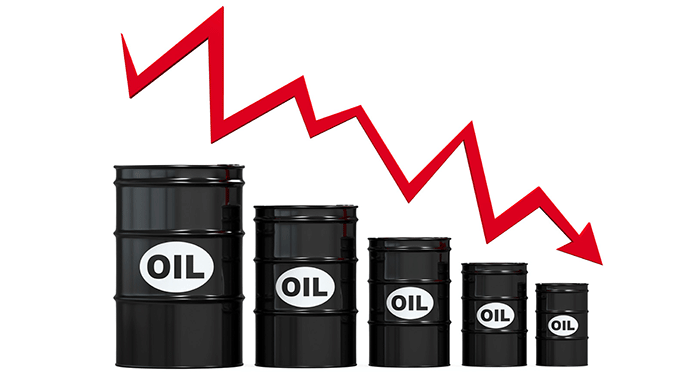Low oil prices amidst the economic fallout from the COVID-19 pandemic could be the only saving grace for some Caribbean economies, a World Bank economist said on Monday.
“For some countries in Latin America, the Caribbean, it will be a saving grace. They are net importers of oil. And the only good news they have is that oil will be cheap; all the rest is bad news,” Martin Rama the World Bank’s chief economist for Latin America and the Caribbean told a virtual press conference.
“But there are some countries for which it will be really a bad hit, because they depend on oil for their exports and this depends on oil for the budget,” he said.
Rama noted that parts of these countries’ budget revenues are related to oil export.
“I think, in the case of Guyana and Trinidad and Tobago it is very clear that what is happening to oil will be extremely important for the region,” he said.
Rama, however, said that across the region and the world, much would depend on what oil producers agree.
“But overall, the sense is that there is an oil glut in terms of the amount of production that is out there and that with an economy in crisis, there is not much demand,” he said.
Rama added:
“So, sustaining high prices will be very difficult. There are some countries that have oil extraction costs so low that they can keep up, but it’s not the case across the region.”
Rama was speaking within the context of the latest semi-annual report, The Economy in the Time of Covid-19.
The report says the Latin America and Caribbean region is seeing a sharp decline in growth due to the coronavirus crisis, which requires several policy responses to support the most vulnerable, avert a financial crisis, and protect jobs.
It said that to help the vulnerable face the loss of earnings from the lockdown, existing social protection and social assistance programs should be rapidly scaled up and their coverage extended.
At the same time, governments may need to support financial sector institutions and key sources of employment.
“We need to help people face these enormous challenges and make sure that financial markets and employers can weather the storm,” said Humberto López, World Bank acting vice president for the Latin America and the Caribbean Region.
“That means limiting the damage and laying the groundwork for recovery as fast as possible.”
A series of shocks hit economic growth in LAC over the past year starting with social unrest, the collapse of international oil prices, and now the COVID-19 crisis. Growth is suffering as a result.
Gross domestic product (GDP) in the Latin America and Caribbean region (excluding Venezuela) is expected to be -4.6% in 2020, according to the report.
A return to growth of 2.6% is expected in 2021.
The coronavirus pandemic is fuelling a major supply shock. Demand from China and G7 countries is falling dramatically, affecting commodity exporters in South America and exporters of manufactured goods and services in Central America and the Caribbean.
A collapse in tourism is severely impacting some countries in the Caribbean.
Many countries in Latin America and the Caribbean are confronting the crisis with a constrained fiscal space. Higher levels of informality make it difficult to reach out to all households and protect all sources of employment, the report said.
Many households live from hand to mouth and do not have the resources to cope with the lockdowns and quarantines needed to contain the spread of the pandemic. Many also depend on collapsing remittances.
To help the vulnerable face this economic challenge, existing social protection and social assistance programs should be rapidly scaled up and their coverage extended, it further stated.
At the same time, governments will have to take on the burden of much of the losses. Socialising the losses may require taking ownership stakes in financial sector institutions and strategic employers through recapitalisation. This support will be key to preserving jobs and allowing for a recovery.
However, these processes need to be transparent and strong arrangements need to be put in place to manage the newly acquired assets, building on the best examples of sovereign wealth funds and asset management companies.
“Governments across Latin America and the Caribbean face the enormous challenge of both protecting lives and limiting the impact of the economic fallout,” said Martín Rama, World Bank Chief Economist for the Latin America and the Caribbean region. “This will require coherent, targeted policies on a scale rarely seen before.”







But its not being passed on to the people. Petroleum gas was selling in some places in the US for 79 cents a gallon. It should have been reduced by 50% in SVG, but it was not. It was reduced by 30% in Grenada because the PM there is a peoples man, a real peoples man.